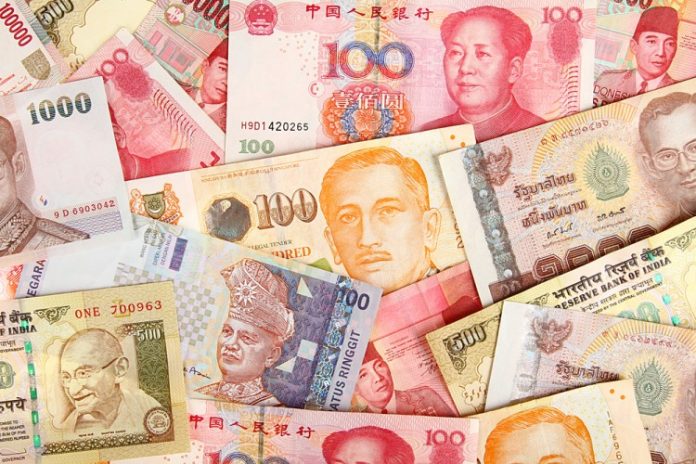
SINGAPORE: Emerging Asian currencies fell on Tuesday as bond yields climbed globally and markets were impacted by speculation the Bank of Japan (BOJ) could modify its huge stimulus programme and by fears United States interest rates would keep steadily rising.
The Chinese yuan weakened the most, reaching its lowest level in over a year as traders bet that monetary conditions in China would be eased further.
Last week, Trump threatened to impose tariffs on all $500 billion of Chinese exports to the United States unless Beijing agrees to major structural changes to its technology transfer, industrial subsidy and joint venture policies.
Indonesia’s rupiah, which has weakened each of the past four sessions dropped by as much as 0.48 percent, reaching its lowest in more than 2-1/2 years.
The South Korean won and the Taiwan dollar both shed 0.2 percent against the dollar.
The Thai baht, Philippine perso and Indian rupee fell 0.1 percent each.
CHINESE YUAN
The yuan reversed Monday’s gains to slide to its lowest since June 2017.
In an unexpected move, China’s central bank said on Monday that it lent $74.36 billion to financial institutions via its one-year medium-term lending facility (MLF), with rates unchanged.
Chang said markets were surprised by China’s move, suggesting that the People’s Bank of China has tilted towards facilitating easier monetary conditions.
Chinese bond yields rose after China’s cabinet said it will implement a more robust policy without resorting to strong stimulus, while cutting $9.6 billion in tax on top of an initial goal of slashing taxes and fees by 1.1 trillion yuan this year.
The PBOC set the yuan midpoint rate CNY=PBOCat 6.7891 per dollar, its weakest since July 11, 2017. The fixing was 298 pips or 0.44 percent weaker than Monday’s midpoint of 6.7593.
On Monday, China said it does not intend to devalue the yuan to help exports after Washington said it was monitoring the currency’s weakness amid the escalating bilateral trade row.






